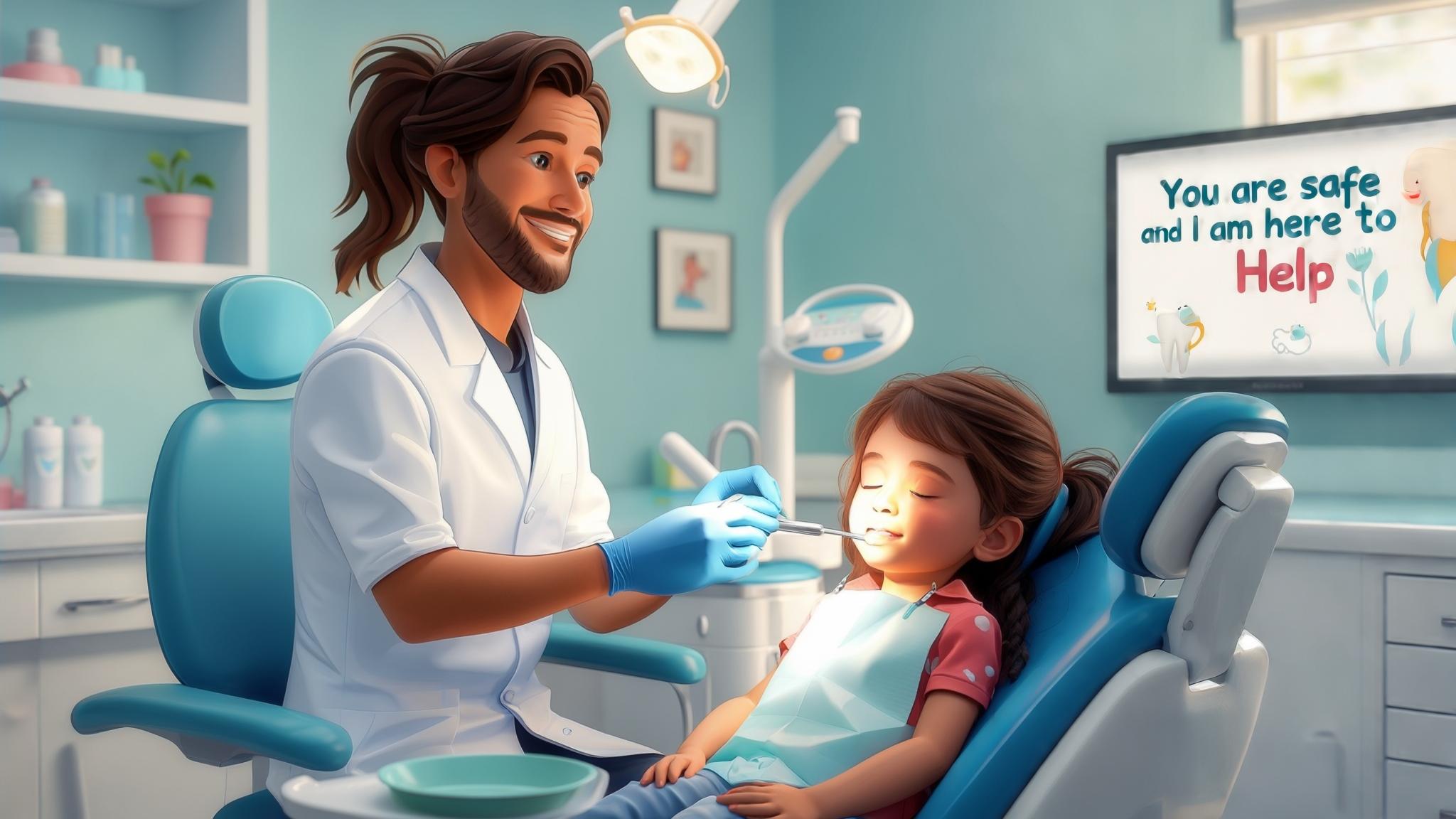The Importance of Children's Dental Health
Ensuring good dental health for children is crucial for their overall well-being. Healthy teeth and gums not only support proper nutrition through effective chewing but also contribute to clear speech development and a confident smile. However, the journey to maintaining good oral health can be challenging, especially when dental anxiety comes into play.
Dental anxiety in children is a common concern. This fear can stem from various sources, such as a previous unpleasant experience, fear of the unknown, or even stories they've heard from peers. According to studies, nearly 20% of children experience some level of dental anxiety, which can significantly impact their willingness to attend dental appointments and maintain oral hygiene.
Understanding Dental Anxiety in Children
Dental anxiety refers to the fear, apprehension, or stress related to dental settings or procedures. For children, this anxiety can be triggered by multiple factors, such as the sound of dental instruments, the sight of needles, or the sterile smell of a dental office.
Children may exhibit emotional responses like crying or panic attacks, and physical responses such as sweating or a racing heartbeat. This anxiety can lead to avoidance of dental visits, resulting in neglected oral health and potential dental issues down the line.
Recognizing Signs of Dental Anxiety in Children
Recognizing dental anxiety early is key to addressing it effectively. Children may show behavioral signs like crying, throwing tantrums, or avoiding discussions about dental visits. Physically, they might sweat, have an increased heart rate, or clench their fists tightly.
Identifying these signs allows parents and dental professionals to intervene early and tailor their approach to make dental visits less daunting for the child.
Strategies for Managing Dental Anxiety
Pre-Visit Preparations
Preparation is essential in reducing dental anxiety. Open communication with your child about what to expect during the visit can alleviate fear of the unknown. Parents can play a crucial role by reading storybooks or watching videos about dental visits together, which can demystify the experience.
Creating a Comfortable Environment
A welcoming dental office can make a significant difference. Child-friendly designs, such as colorful walls and play areas, help create a pleasant atmosphere. Friendly staff who greet children warmly and use distraction techniques like toys or audiovisual aids can further ease anxiety.
Building Trust and Rapport
Dentists can build trust with young patients by using gentle, empathetic communication. Inviting children to participate in their care, such as choosing the flavor of fluoride treatments, can empower them and reduce fear.
Behavioral Techniques
Positive reinforcement, such as praising the child for their bravery, can encourage cooperation. Relaxation techniques like deep breathing or visualization can also help calm anxious children. Parents should maintain a calm demeanor to model a stress-free attitude towards dental care.
Professional Support
For severe cases of anxiety, behavioral therapy or counseling may be beneficial. Pediatric dentists are specially trained to handle anxious children and can offer techniques tailored to individual needs. In some cases, sedation dentistry might be considered to ensure a stress-free experience for the child.
Conclusion
Addressing dental anxiety in children is crucial for their long-term oral health. Parents should actively engage in their child's dental care journey, seeking out child-friendly practices and supporting their child through each visit. By doing so, they can help their children develop a positive attitude towards dental health that lasts a lifetime.
References
- "Prevalence of Dental Anxiety in Children and Adolescents," Journal of Dental Research.
- "Managing Pediatric Dental Anxiety: A Review," Pediatric Dentistry Journal.
- Resources from the American Academy of Pediatric Dentistry on children's dental health and anxiety management.

